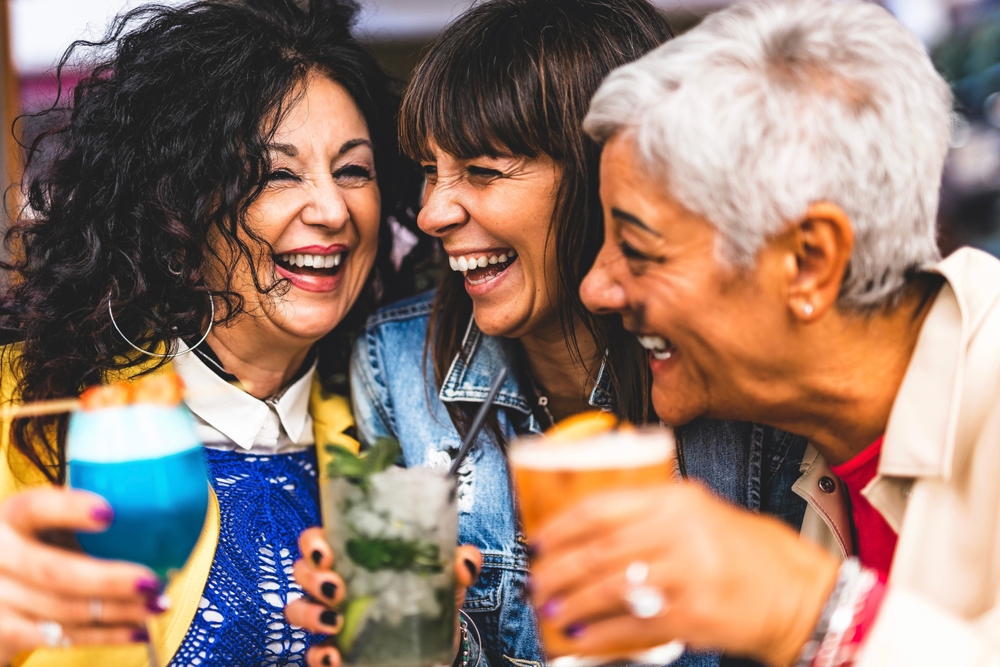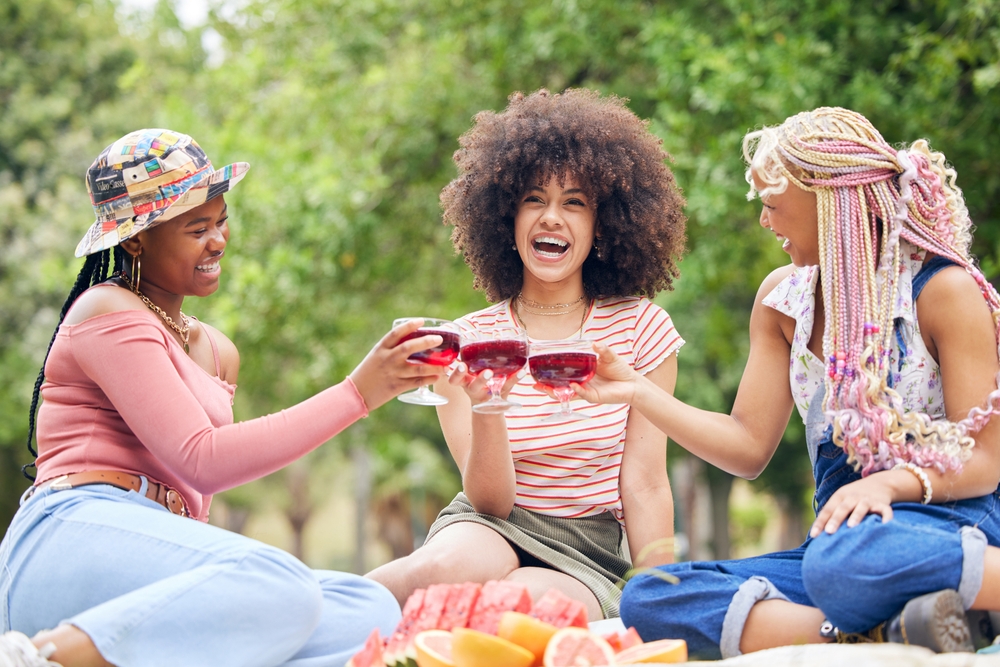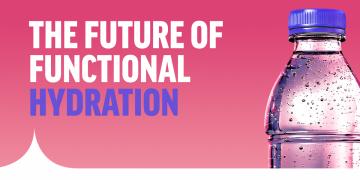Our recent Natural Extracts report highlighted the generational trends that have influenced the evolving beverages and flavourings market. We explore the similarities and priorities between the cohorts and why health and wellbeing continues to be a key driver.
A market shaped by the wants and needs of beverage consumers across the generations
The global beverage market is constantly changing, and is an industry driven by the evolving tastes and lifestyles of consumers of all ages. Understanding what different demographic groups prioritise and expect from the beverages they consume – from varying flavourings to how they’re marketed and sold – can provide valuable insights for businesses looking to develop new products and take them to market.
In a multibillion-dollar industry, it’s important not to lose sight of the more significant trends that penetrate more widely rather than solely through generational influences. For example, our Natural Extracts report highlighted that 81% of consumer respondents cited that ‘natural’ was an essential or nice-to-have feature when choosing a beverage. This drive towards natural products has accelerated since the COVID-19 pandemic, where consumers of all ages have continued to become more health conscious. However, digging a little deeper uncovers the nuances of each demographic and how their demands and attitudes shift between the generations.
Baby Boomers – valuing health and traditional flavours
Baby Boomers, born in the years following the Second World War up to the mid-1960s are often associated with post-war economic prosperity having lived through a generation of cultural change. Boomers currently make up the second-biggest demographic group in Europe and the US (although less significant globally due to the relative youth of the world’s population) and hold a huge amount of purchasing power relative to their numbers.
When it comes to their tastes in beverages, Boomers tend to value classic and familiar flavours, with many opting for trusted and familiar brands they have valued for many years. A recent report by Innova found that these beverage consumers particularly value ‘naturalness’, even above flavour, and are likely to be the most health conscious compared with their younger counterparts. Tea, long held as the epitome of a good health drink in many parts of the world, reigns supreme with Boomers, with growing interest in varieties such as green, jasmine, oolong and herbal teas.
Interestingly, despite this health trend, Boomers consume more alcoholic beverages, more so in the UK, Australia and across Europe, with wine making up the single most popular alcoholic beverage amongst this demographic. While many Boomers have adopted digitisation with a presence on social media (more than 80% in the US and predominantly on Facebook), unlike other generations, they are far less likely to be influenced to make a purchase by social media, with this figure sitting at just 9% in 2022. Boomers continue to be effectively engaged through more traditional forms of advertising, such as TV, radio, print media and by word-of-mouth recommendations from friends and family.

Generation X – powering up the premiumisation trend
Generation X, born between 1965 and 1980, grew up in a time of rapid technological change. Gen X’ers are the biggest demographic group in the US and Europe, and like their Boomer counterparts, have largely achieved financial freedom and security, and many will have young or maturing families. Gen X’ers have wide and varied tastes in beverages, having grown up during the boom in the availability and variety of different products, and are willing to pay more for a premium experience, especially for brands they have an affinity for. This ‘premiumisation’ trend has seen the advent of an entire premium drinks market to cater for this growing segment.
Gin, which has seen a renaissance during the 2010s, with this market expected to grow by over 30% globally by 2027, is one example where the demands of Generation X are driving premiumisation. A drive for flavourings such as botanicals, seen as a more natural or healthy ingredient, has seen increasing numbers of flavoured gin labels marketed as sophisticated, premium beverages with premium prices to match. Many of these trends can be directly attributed to social media, with these beverage consumers the first to be significantly influenced by social media marketing through apps such as Instagram, Facebook and, increasingly, TikTok.
Millennials - tech savvy, diverse and socially conscious
Born between 1981 and 1996, Millennials grew up during the technological revolution and make up the biggest single demographic group globally. In many countries, Millennials were hit hard by the 2008-09 Great Recession and later by the global response to the COVID-19 pandemic. These factors have seen Millennials in particular experience a squeeze on their living standards, and in some countries, are destined to the first generation of modern times to be poorer than the preceding generation. Millennials are also the first generation to be fully socially conscious and so the first to respond to businesses based on their social and environmental credentials. As the key target market for beverage manufacturers, their tastes often drive innovation and trends within the industry, amplified through social media platforms such as TikTok and Instagram.
As a diverse generation, Millennials embrace trying new flavours and often seek unique and tailored experiences. Though they consume less alcohol than their Boomer or Gen X counterparts, craft beer is one area that has exploded in popularity with Millennials over the last decade. This market is dominated by a range of manufacturers - from microbreweries to big established players – and by an ever-growing range of beers that are complimented with natural flavourings.
Moreover, our Natural Extracts report identified the same generational trend in the low and no alcohol market, with this market predicted to grow by 7.6% annually until 2027. Hard seltzers, with their low alcohol content and punchy, fruity flavours, are just one of several beverages that have benefited hugely from this trend and are already big business in the US. Along with trendy craft beers, canned cocktails have also seen a big surge in popularity with Millennials, fuelled by social media and influencer content showcasing these beverages as classy and sophisticated and with a wide range of flavours and strengths; some of these products also fit into the low and no alcohol category, thus further widening their appeal.
While flavour and price play an important role for these beverage consumers, so do the way in which these are marketed – particularly on social media. Millennials value storytelling and authenticity and in many cases, are buying in as much to the organisation itself as well as the beverage.

Generation Z – a generation of true digital natives
Generation Z, born between 1997 and the mid-2010s, represents the newest and emerging cohort of generational influencers. As the first generation to grow up entirely within the new technological age, they are true digital natives harnessing and utilising the internet, social media and connectivity more regularly and effectively than any preceding generation. Gen Z strongly values individuality and is more socially and environmentally conscious than the Millennials before them. As the youngest generation, they have the least overall spending power of any cohort, but without the responsibilities of their Millennial counterparts, they are often less price-sensitive.
Beverage choices by Gen Z are likely to be much more emotionally driven and often influenced by what content they have engaged with on social media. Prime Energy, a sports drink launched by YouTube and social media stars KSI and Logan Paul, has seen huge popularity after being promoted on TikTok and saw stocks running out within days. This form of influencer marketing is key to engaging many Gen Z’ers, who put huge value in seeing and engaging authentic content before purchasing.
Generation Z also shares an interest in health-oriented beverages, with a renewed interest in natural flavourings as well as plant-based, low sugar and low-fat alternatives. Like their Gen X and Millennial counterparts, for the majority of those Gen Z’ers who do drink alcohol, premiumisation rules supreme. The trend towards craft beers and canned cocktails, marketed as premium products, is also significant amongst this demographic too and should not be overlooked by beverage developers across the globe.
Interested in our TrendBites?
We’re constantly scanning the market to provide insight into the latest trends and beverage innovations. Keep up to date with our TrendBites and market reports by signing up for our newsletter - button can be found to the left of the screen.
Sources
Innova Market Insights – Top Trends 2023 Beverages Report
Globaldata – 2023 Consumer Survey



